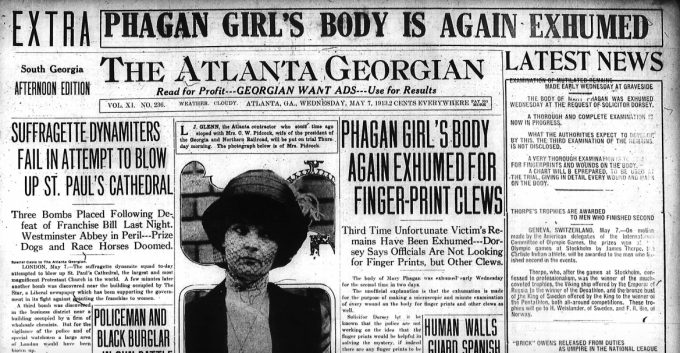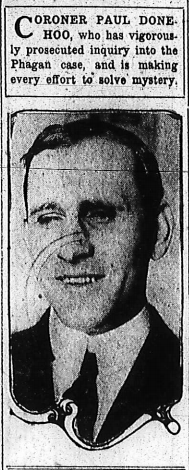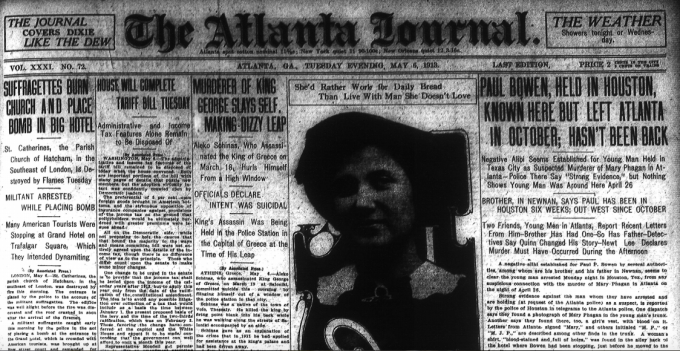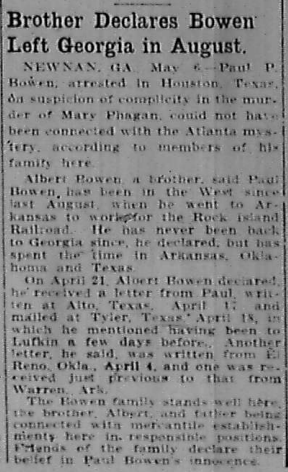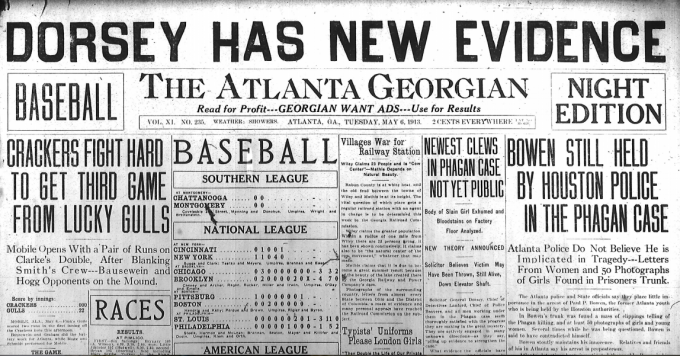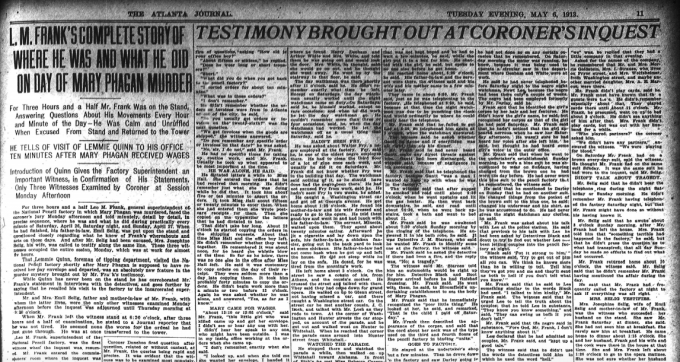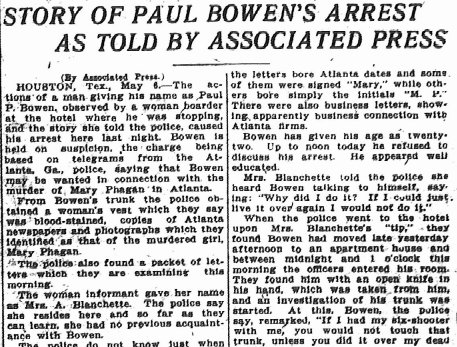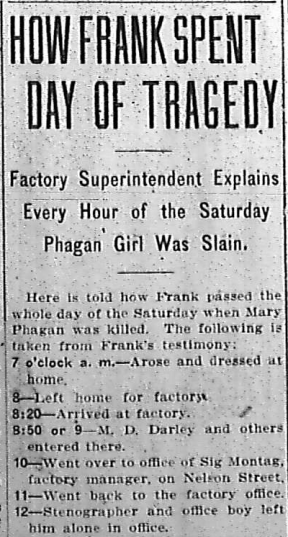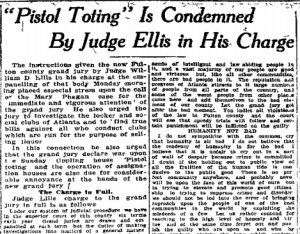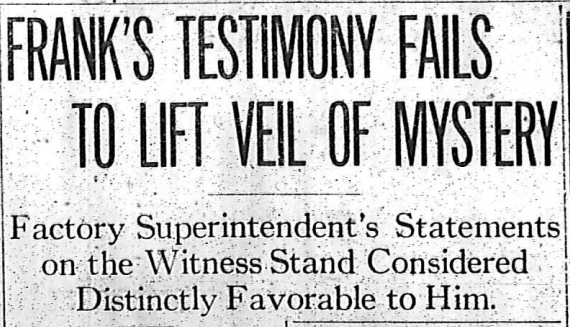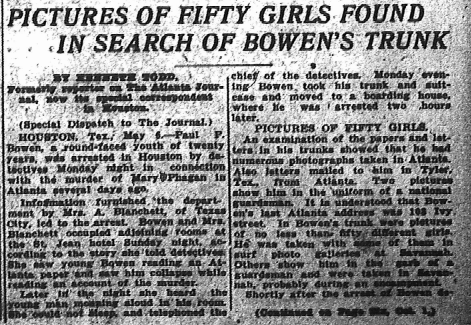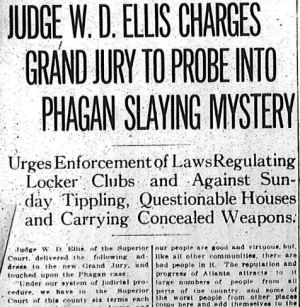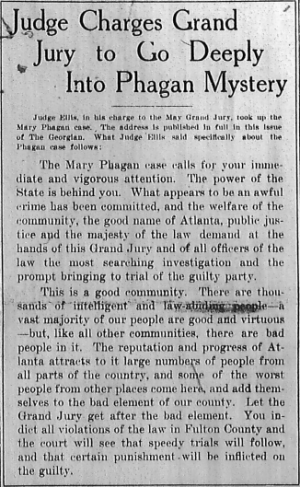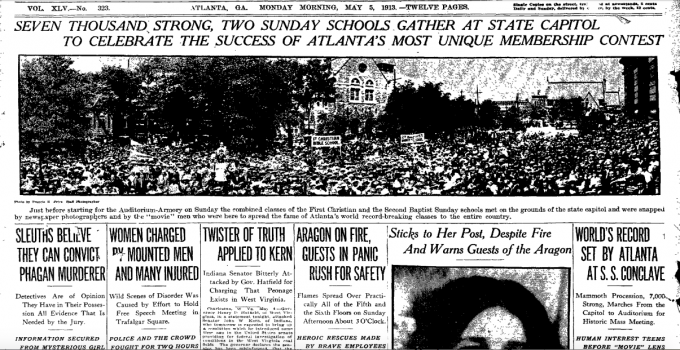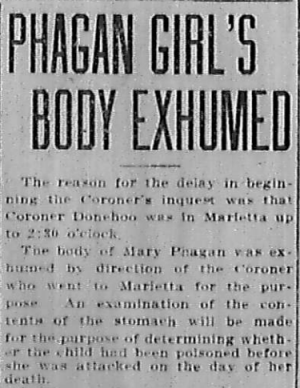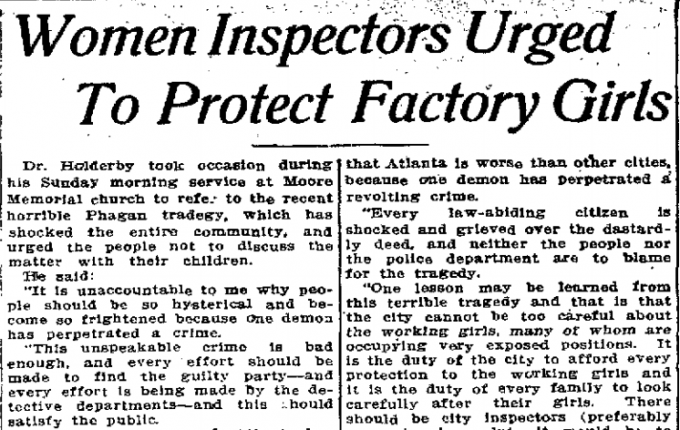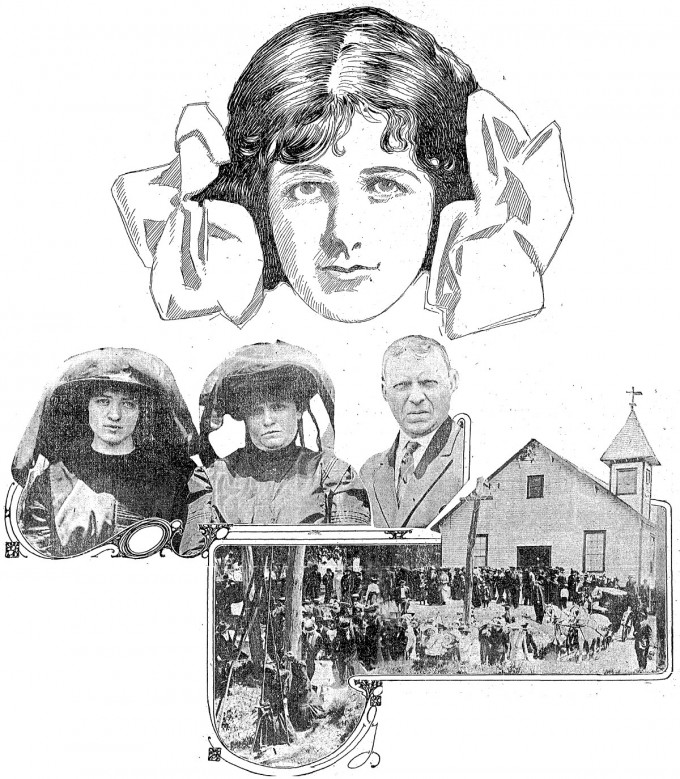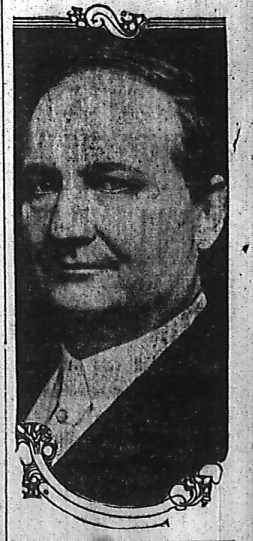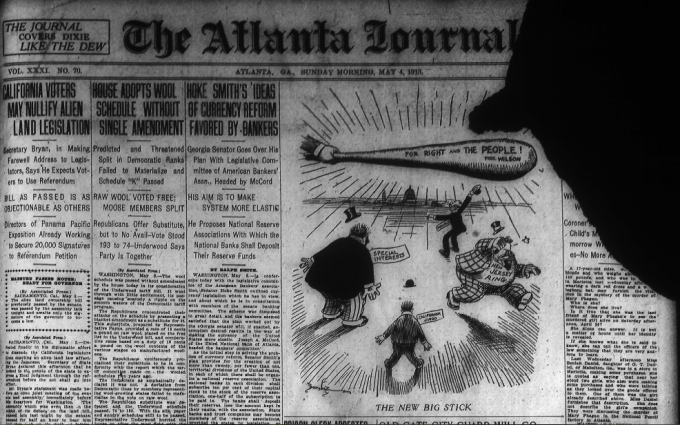Another in our series of new transcriptions of contemporary articles on the Leo Frank case.
Atlanta Georgian
Wednesday, May 7th, 1913
Third Time Unfortunate Victim’s Remains Have Been Exhumed—Dorsey Says Officials Are Not Looking for Finger Prints, but Other Clews.
The body of Mary Phagan was exhumed early Wednesday for the second time in two days.
The unofficial explanation is that the exhumation is made for the purpose of making a microscopic and minute examination of every wound on the body for finger prints and other clews as well.
Solicitor Dorsey let it be known that the police are not working on the idea that the finger prints would be helpful in solving the mystery, if indeed there are any finger prints to be found, as the body has been embalmed and has been handled by many persons since it was first discovered in the basement of the pencil factory.
Nevertheless, it may be safely said that a microscopital [sic] examination will be made of every mark on the body.
It was reported before the departure was made for Marietta that a Bertillon expert had been engaged and that if any finger prints were found, photographs would be taken and the most careful measurements made for the purpose of comparison. Continue Reading →

